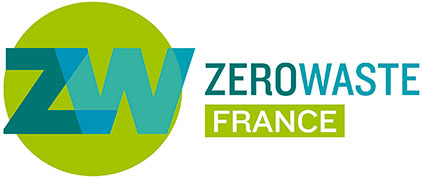How to start a zero waste lifestyle
For a few years now, thousands of people and families have been tackling the “zero waste” challenge, trying to reduce their daily trash as much as possible.
A first step towards Zero Waste
Since 2012, authors, bloggers and documentary makers are getting interested in this lifestyle, often trying it out for themselves. In 2018, dozens of French speaking groups dedicated themselves to this topic, fueled by thousands of contributors, and twenty or so reference blogs and consumer products are slowly adjusting to the new demand. Bulk stores are booming and manufacturers now offer reusable and washable products. This phenomenon is closely intertwined with the rise of the zero waste lifestyle.
Can zero waste lifestyles be generalized to the rest of the population? For the moment, this lifestyle seems to attract people because of the sense of fun and challenge it instills in everyday life. That is why motivation is a key factor for its success. However, a great part of what zero waste habits promotes is not hard to put into practice and the rest becomes increasingly more approachable with the new regulations which were implemented.
Broadly speaking, installing zero waste goals at home are often a starting point, enabling people to discover other eco-conscious behaviors. It is also a first step taken before collective actions are initiated.
Where should you start? Three habits to adopt
« But, where should I start? » is a commonly heard question. People react differently, and one person may find difficult what another finds easy. That is why there is no right order and no correct logic that need to be followed: you should listen to your heart to rightly fuel your own motivation. If you live with your family, you might want to decide first together what are the first steps to take, to make sure your family supports you.
Here are three steps that have a strong impact on your waste production:
- Compost your biowaste: if you sort out your food waste (peelings, coffee ground…) and compost them, you can decrease by 1/3 the waste your home produces. The compost you will get can be used as a natural fertilizer with rich nutrients, particularly for your plants and your garden. Several methods exist: individual or collective compost bins, vermicomposts (in a flat) etc. If you want more information, please visit : www.biodechets.org.
- Buy in bulk: stores with bulk products can be found in fifty or so cities in France. They can provide you with food items, cosmetics or cleaning products. You can easily buy package free items if you get your supplies at the farmers’ market or if you bring your own containers to your grocer. The few items you absolutely need if you want to buy in bulk are: a shopping bag, reusable cotton or muslin bags, boxes, jars…
- Prefer secondhand objects: when you buy clothes, furniture, household appliances, books… The first reflex to adopt is to borrow or to rent from individuals or from professionals you can find on specialized websites which are here to facilitate your search and put you in contact with the right people. If this does not work, you can also favor second hand items found in specialized stores or on the internet.
Bonus: two simple habits to adopt right now
- Adopt the « Stop Pub » (« Enough with the ads »): our mailboxes are filled with non-desired ads. Leaflets represent an average of 31 kg per household per year. With this simple action, each of us can limit the amount of waste that is produced. You only need to download a « stop-pub » sign and put it on your mailbox…

- Regularly sort your emails out: even if you don’t feel like you’re producing waste, sending an email consumes a lot of energy (to power the computer, storage in data centers) and has a profound impact on greenhouse gas emissions and on the extraction of raw materials. To limit the ecological impact due to email exchanges, the ADEME agency has given a few recommendations : you should avoid sending emails to multiple recipients when you can, use a laptop computer which uses from 50 % to 80% less energy than a desktop computer, install a spam filter, reduce the size of your attached files or find alternative solutions (hypertext link, file transfer websites, the cloud…) and, of course, you should sort out and delete regularly the archived email that are no longer useful. (source RSLN)
Start Small…
To shift from one garbage bin a day to one a year can seem too hard of a task! But in fact, it is much easier than people often think, if you make sure you do not change everything at once. Unless you are extremely motivated, to abandon your habits all at once is not a good strategy if you want to keep it going in the long run.
Go Step by Step…
Zero Waste lifestyles, when it is divided into simple and successive actions, end up being mere common sense. It favours adaptation more than frustration. If you take your time, you will be able to find new pleasures which go hand in hand with the new habits you will adopt. Maybe you will enjoy DIYs or the fact that it lightens and simplify your life, or simply the possibility to eat and use good quality products.
How can you measure your progress?
If you want to measure the impact of your new habits, you can weigh your trash cans. The process can be a bit tedious, but it can enable you to realize the progress you made. Another possibility would be to calculate the amount in liters of waste while counting the number of trash bags you use.
You will soon see the fruit of your efforts!
In any case, there is a high chance that you will immediately notice the difference: the results of ‘zero waste’ family challenges organized in Roubaix, Grenoble, Miramas or Nantes recently showed that waste can be halved. In Roubaix, 25% of the 101 families involved managed to decrease their trash by 80% between the end of 2014 and mid 2015!
